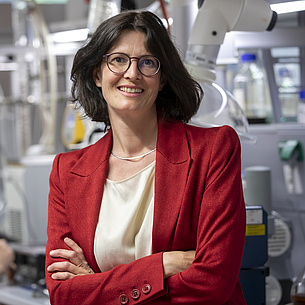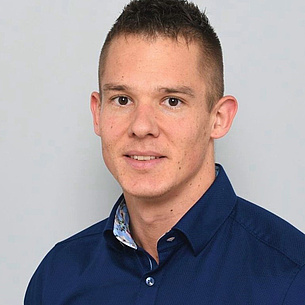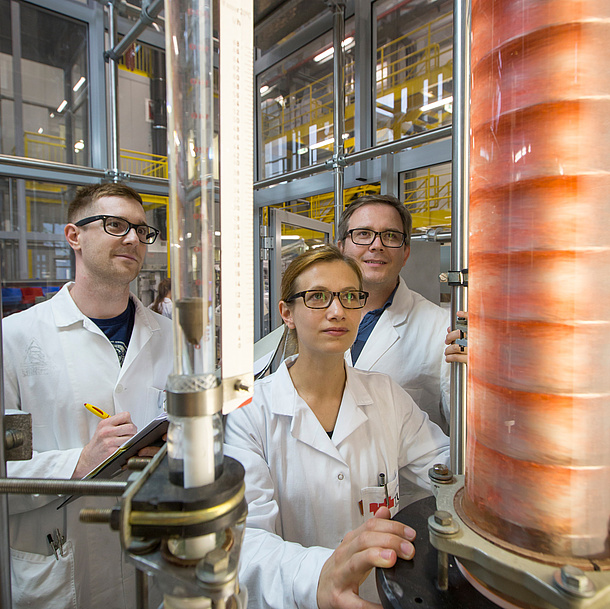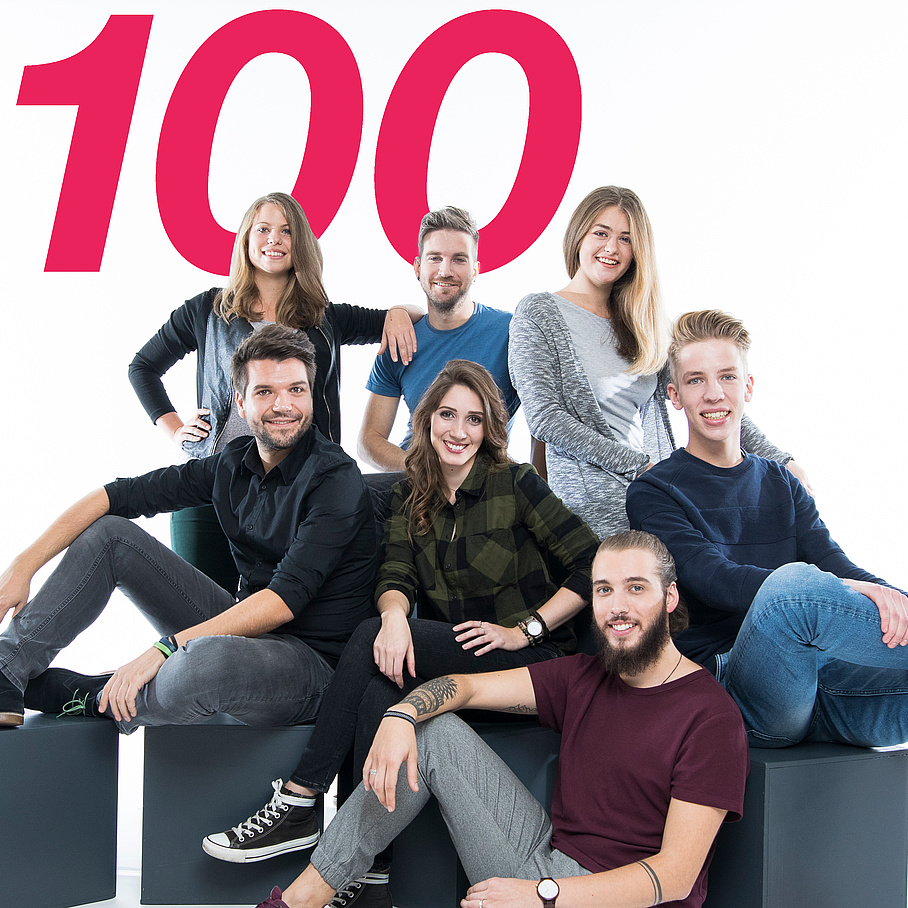- Duration of study: 4 semesters
- ECTS credit points: 120
- Academic degree:
Diplom-Ingenieurin
orDiplom-Ingenieur
(Dipl.Ing. or DI), equivalent to the Master of Science (MSc) - Language of instruction: English
The Master's Programme
The focus of the Master’s programme is on the following aspects:
- (Environmental) chemical and process engineering: Manufacturing of products based on renewable raw materials, minimisation of pollutants and conservation of resources
- Energy technology: Development of technologies for using renewable energies, energy storage and conversion, energy management systems
- Resource efficiency and circular economy: Technologies for recycling materials, closing material cycles, minimising waste and emissions
- Green chemistry: Application of environmentally friendly chemical reactions, methods for minimising hazardous substances, transfer to industrial processes
Topics you will work on include:
- Isolation and modification of various resources from biomass and by-products
- Conversion of biomass for the production of chemicals, fuels, electricity, and heat
- Utilisation of industrial by-products and/or biogenic resources in clean energy technology
In a range of practical laboratory units and laboratory projects you will work on real-world questions, making use of cutting-edge infrastructure (e.g. FELMI, SOMAPP Lab). In addition to applying analytical methods you will learn to transfer results from the lab to an industrial scale. The programme also stands out for the high-quality supervision of students in small groups and excellent dialogue between students and teaching staff.

The close link with practice and the orientation towards innovation of this degree programme enables students to carry out high-quality, structured research work and to develop innovative systems with a scientific basis to convert biogenic resources into energy and high-quality products economically and with great ecological responsibility as part of a modern bioeconomy.
You will acquire basic knowledge in the following compulsory modules:
Bridge courses: Depending on your previous training you will acquire the necessary basic knowledge to optimally start in the areas of specialisation
Green Process Engineering Basics: You will receive an introduction to the main principles of thermodynamics, thermal separation processes, calculation methods and design methods. You will also study resources, technologies and sectors of bioeconomy, the energy transition and the development of sustainable materials.
Chemical and Analytical Aspects: You will learn how to analyse and produce new bio-based materials with the aid of chemical and physical processes. You will cover the basics of green chemistry and its applications. You will study in depth the composition and utilisation of lignocellulosic biomass and useful plants and the elaboration of value chains.
Green Technologies: You will become familiar with separation and thermochemical conversion processes used in bio-based industry and perform a life cycle assessment and analyses of economic and ecological value chains. You will also learn how chemicals, various materials, fuels, electricity and heat can be produced.
In addition, you will specialise in one of the following three compulsory elective modules:
- Green Energy and Energy Management: Development of efficient systems for energy generation, storage and distribution from renewable sources
- Green Process Engineering Technologies: Development of production processes from the viewpoint of resource efficiency and the circular economy
- Green Chemistry and Biotechnology: Application of biotechnological and chemical processes for the sustainable production of materials and chemicals:
Thanks to established partnerships with industrial enterprises at the national and European level, you will be able to carry out cooperation projects (e.g. projects or master’s thesis) and take part in excursions and network events. For example, students are involved in ongoing projects as student employees in order to gain scientific experience and make contacts with partners in industry. What is more, you will have the opportunity to receive practical training and to write your master’s thesis at leading international partner institutions.
Admission
The prerequisite for admission is a completed bachelor’s degree in a relevant subject (see curriculum).
Additionally, you need to provide evidence of competence in the English language.
Admission without admission procedure
The following are eligible for admission without an admissions procedure:
- students, who have already been admitted to the following Master's programmes offered at TU Graz:
- graduates of the following Bachelor’s programmes at TU Graz or the University of Graz (in the case of NAWI Graz programmes):
Graduates of other programmes offered at TU Graz or NAWI Graz students at the University of Graz can apply for admission at the Registrar's Office.
Admission with admission procedure
Graduates of a previous study programme not mentioned above undergo an admission procedure.
Registration for the academic year 2027/28: 15 October to 15 December 2026
You can complete the admission procedure before the end of your bachelor’s studies.
- Admission and deadlines for international students
- Admission and deadlines for Austrian students who are registering to study at TU Graz for the first time
If you have already been admitted to a degree programme at TU Graz, or have studied at TU Graz before, please come to the Registrar's Office in person to complete your admission during the admission period.
Contact study@tugraz.at
Career Prospects
Green process engineers are key experts for implementing an innovative bioeconomy and the circular economy, both prime goals of European economic and research policy. They are in great demand in many industries throughout Europe, including energy generation, environmental technology, chemical industry, resource management and consulting. They work in leading positions at interdisciplinary points along the entire value chain in order to set the course for a sustainable future.
Thanks to the strong collaboration in current research projects and involvement in international cooperations, students receive practical, research-based training that is appreciated in both science and industry.
Graduates have excellent career prospects in international companies, research facilities and in the public sector. In addition, the course is a qualification for further scientific activities as part of a doctoral programme.

The practice-oriented teaching approach and international networking opportunities, such as summer schools, provide an excellent foundation for success in both research and industry. The opportunity to engage in cutting-edge research on innovative processes and renewable materials, coupled with the diverse career prospects that emerge from this, made the degree programme particularly appealing to me. After completing my Master's degree, I chose to further deepen my expertise by pursuing a doctoral programme in process engineering with a focus on biorefinery at TU Graz, building on the solid knowledge base I had already developed. The skills and connections I made during my education were invaluable in helping me transition smoothly into the professional world, where I can now apply my knowledge to real-world challenges.
Acquire AI skills: AIE Extension Programme
Increase your career prospects with the Artificial Intelligence Engineering (AIE) extension programme and learn essential skills in AI development and application during or after completing your Master's degree.




